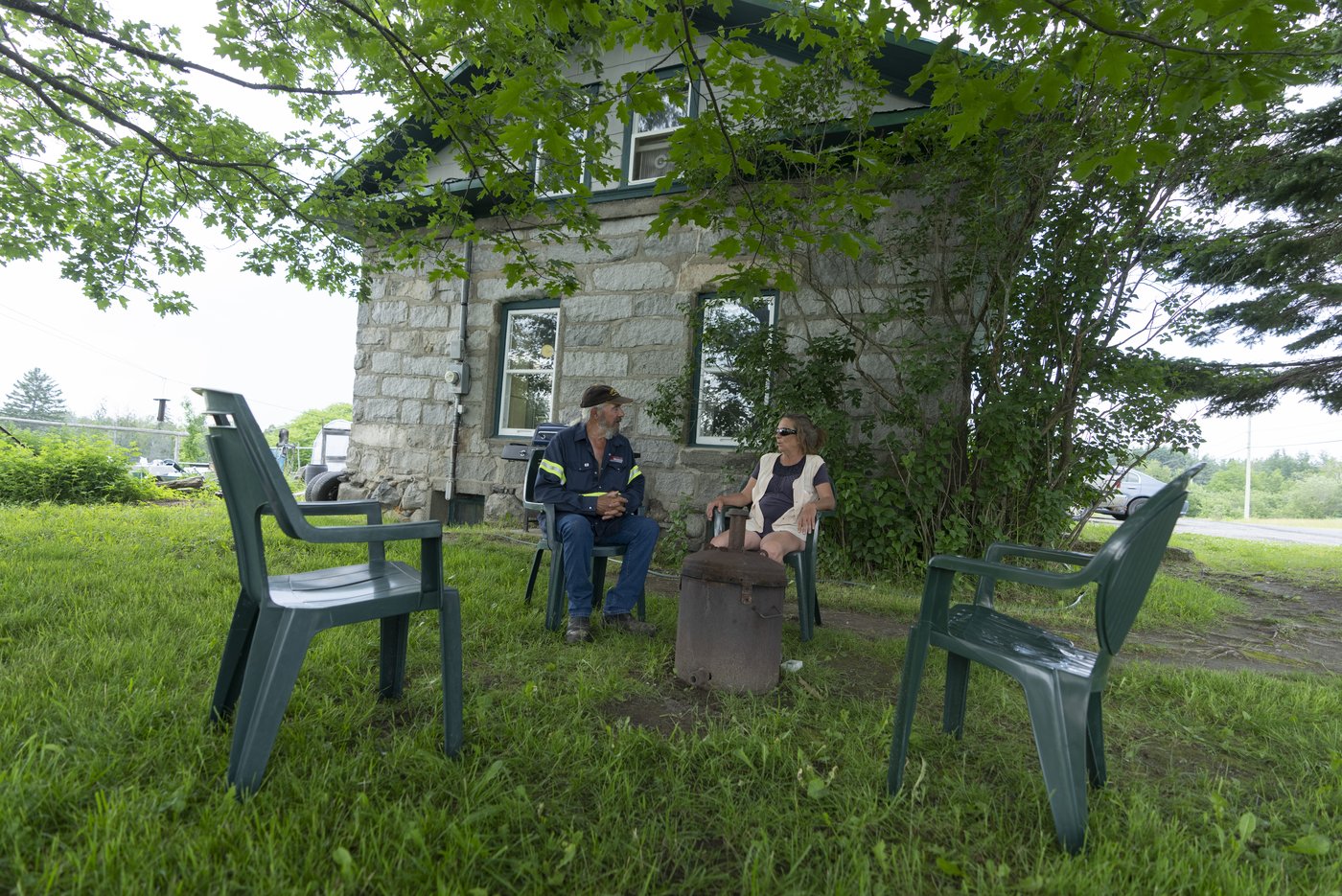Elevate your local knowledge
Sign up for the iNFOnews newsletter today!
Sign up for the iNFOnews newsletter today!
Selecting your primary region ensures you get the stories that matter to you first.

MONTREAL — Two years after their home was expropriated to make way for a rail bypass, Lac-Mégantic, Que., resident Raymond Savoie and Rita Boulanger are still fighting to stay in the stone cottage where they live alongside three cows and a lifetime of memories.
Their home and part of their land was expropriated by the federal government in 2023 for a project to divert trains from the community’s downtown, parts of which were destroyed in 2013 when an oil-laden train derailed and killed 47 people.
On Tuesday, they appeared in Quebec Superior Court with their lawyer, asking for more time in the home that was built by Savoie’s great-grandfather nearly a century ago.
The couple’s lawyer argued it’s premature to ask them to vacate the home since the Canadian Transportation Agency has not yet given the go-ahead to begin construction. Daniel Larochelle pointed out that the rail bypass has been in the works for 10 years, with no start date.
“The expropriation has been done for two years and we’re still in the same place as when I argued in front of Federal Court (against expropriations) in 2023,” he said. “The question is, where is the urgency? Is there really an urgency to show these people the door?”
Boulanger, in a brief phone conversation on Monday, said they aren’t giving up on staying in their home. She noted that they have three cows, farm equipment and an outbuilding full of hay. “How are we supposed to have our cows in an apartment?” she said.
The federal and provincial governments in 2018 committed funding for the 12.5-kilometre rail bypass. However, construction can’t begin without the approval of the Canadian Transportation Agency, which issued a letter in early 2023 stating the application from Canadian Pacific Kansas City — which will operate the future bypass — lacked information on the project’s environmental impact.
The federal transportation minister announced last month that the application for the project had finally been submitted to the agency. But the couple’s lawyer said in court there are several steps to go before construction can start.
According to Transport Canada, those steps include analysis of the application as well as additional consultations. Larochelle said his clients agreed to allow workers to come on the land to conduct further preliminary work in the meantime. “What they don’t want is for the house to be destroyed,” he said.
A lawyer representing the federal justice minister argued in court that the couple’s request for additional delays in moving out aren’t reasonable. Caroline Laverdière noted that the federal Crown has owned the land for more than two years, and has tried repeatedly to resolve the situation with the landowners by dialogue. The delays in the file, she argued, are the very reason that the evictions can’t wait.
“Canada cannot wait another six months, especially given the fact that it’s been more than two years that nothing has moved forward despite several efforts by Canada, the evidence of which before you is not contradicted,” she said.
In an email, Laverdière said the eviction process was a “last resort,” after the couple refused to leave.
At the end of the hearing, Justice Claude Villeneuve warned Savoie and Boulanger that he would have no choice but to eventually order an expulsion order. “Now, it remains to be seen what time limit I am going to grant you,” he said.
Some citizens in Lac-Mégantic and neighbouring communities have become opposed to the bypass in recent years, citing concern with the route, cost and potential damage to wetlands and water supplies. Kurt Lucas, the co-founder of a citizens’ group opposed to the project, believes the expropriations were announced for “political” reasons back in 2023.
“It was for appearances for the 10-year anniversary (of the tragedy),” he said in a phone interview Friday.
He said the transportation agency has not yet confirmed that the newly submitted application is complete this time, let alone approved the project.
The federal government expropriated a part of Lucas’s land, effectively cutting his property in two pieces. He says Lac-Mégantic residents have ample evidence that the new bypass could contaminate the water and increase the risk of future derailments because of an increase in curves and faster train speeds.
He said the bypass project, intended to help heal the psychological wounds of the community, has also divided the population — some of whom are asking to be allowed to vote in a new referendum on whether it should go ahead.
This report by The Canadian Press was first published Oct. 7, 2025.
This site is protected by reCAPTCHA and the Google Privacy Policy and Terms of Service apply.
Want to share your thoughts, add context, or connect with others in your community?
You must be logged in to post a comment.